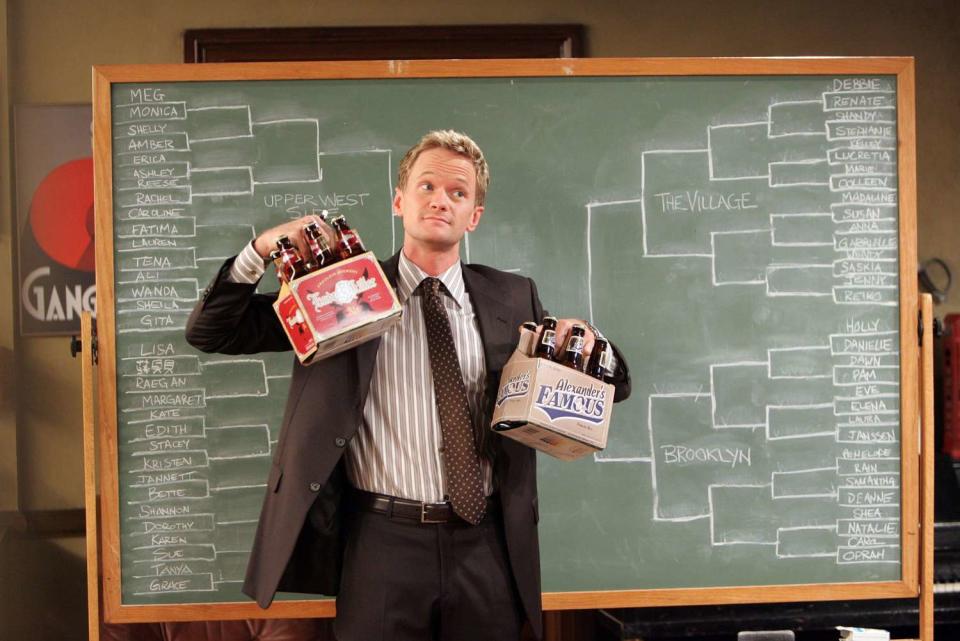Neil Patrick Harris Says There's 'Something Sexy' About Straight Actors Playing a Gay Character

Richard Shotwell/Invision/AP/REX/Shutterstock
Neil Patrick Harris is revealing his thoughts on whether or not casting should have anything to do with a person's sexual preference.
In a recent interview with The Times, the How I Met Your Mother star, 47, said he is all for a straight actor playing a gay role in TV and film, sharing that he believes it is most important to "hire the best actor."
"I'm not one to jump on to labeling," the actor, who is openly gay, shared. "As an actor you certainly hope you can be a visible option for all kinds of different roles. I played a character [in How I Met Your Mother] for nine years who was nothing like me."
Harris currently stars in Russell T Davies' miniseries, It's A Sin, which follows the lives of a group of young gay men living through the AIDS crisis in 1980s England. In contrast with Harris' comments, Davies has been vocal about only wanting to cast gay actors in gay roles.
RELATED: Viggo Mortensen Defends Playing a Gay Man: 'Maybe I Am, Maybe I'm Not' Completely Straight
"I'm not being woke about this … but I feel strongly that if I cast someone in a story, I am casting them to act as a lover, or an enemy, or someone on drugs or a criminal or a saint," Davies told the Radio Times. "They are not there to 'act gay' because 'acting gay' is a bunch of codes for a performance."
Davies continued, "It's about authenticity, the taste of 2020. You wouldn't cast someone able-bodied and put them in a wheelchair, you wouldn't black someone up. Authenticity is leading us to joyous places."
Harris, however, explained that he thinks "there's something sexy about casting a straight actor to play a gay role, if they're willing to invest a lot into it. There's a nervousness that comes from the newness of it all."
"To declare that you'd never do that, you might miss opportunities," he added.
The actor also noted that one of Davies' previous shows, Queer as Folk, which featured straight actors in gay roles, was a "true turning point" for him.

Monty Brinton/CBS/Getty
"It was one of the real true turning points for me as examples of sexy guys behaving as leads in something of import, not as comic sidekicks," Harris said.
The actor then said he has no plans to turn down playing straight characters in the future.
"In our world that we live in you can't really as a director demand that [an actor be gay or straight]. Who's to determine how gay someone is?" Harris explained.
RELATED: 10 Celebrities Who Have Played Gay Characters
The conversation surrounding whether heterosexual actors should play gay characters has been building in recent years.
In November, Kristen Stewart told Variety she thinks about the topic "all the time" during an interview for her Hulu filmHappiest Season.
"I would never want to tell a story that really should be told by somebody who's lived that experience," Stewart said. "Having said that, it's a slippery slope conversation because that means I could never play another straight character if I'm going to hold everyone to the letter of this particular law."

Lacey Terrell/Hulu Aubrey Plaza, Kristen Stewart in Happiest Season
She continued, "I think it's such a gray area. There are ways for men to tell women's stories or ways for women to tell men's stories. But we need to have our finger on the pulse and actually have to care."
"You kind of know where you're allowed. I mean, if you're telling a story about a community and they're not welcoming to you, then f— off," Stewart said. "But if they are, and you're becoming an ally and a part of it and there's something that drove you there in the first place that makes you uniquely endowed with a perspective that might be worthwhile, there's nothing wrong with learning about each other. And therefore helping each other tell stories. So I don't have a sure-shot answer for that."

 Yahoo Finance
Yahoo Finance 